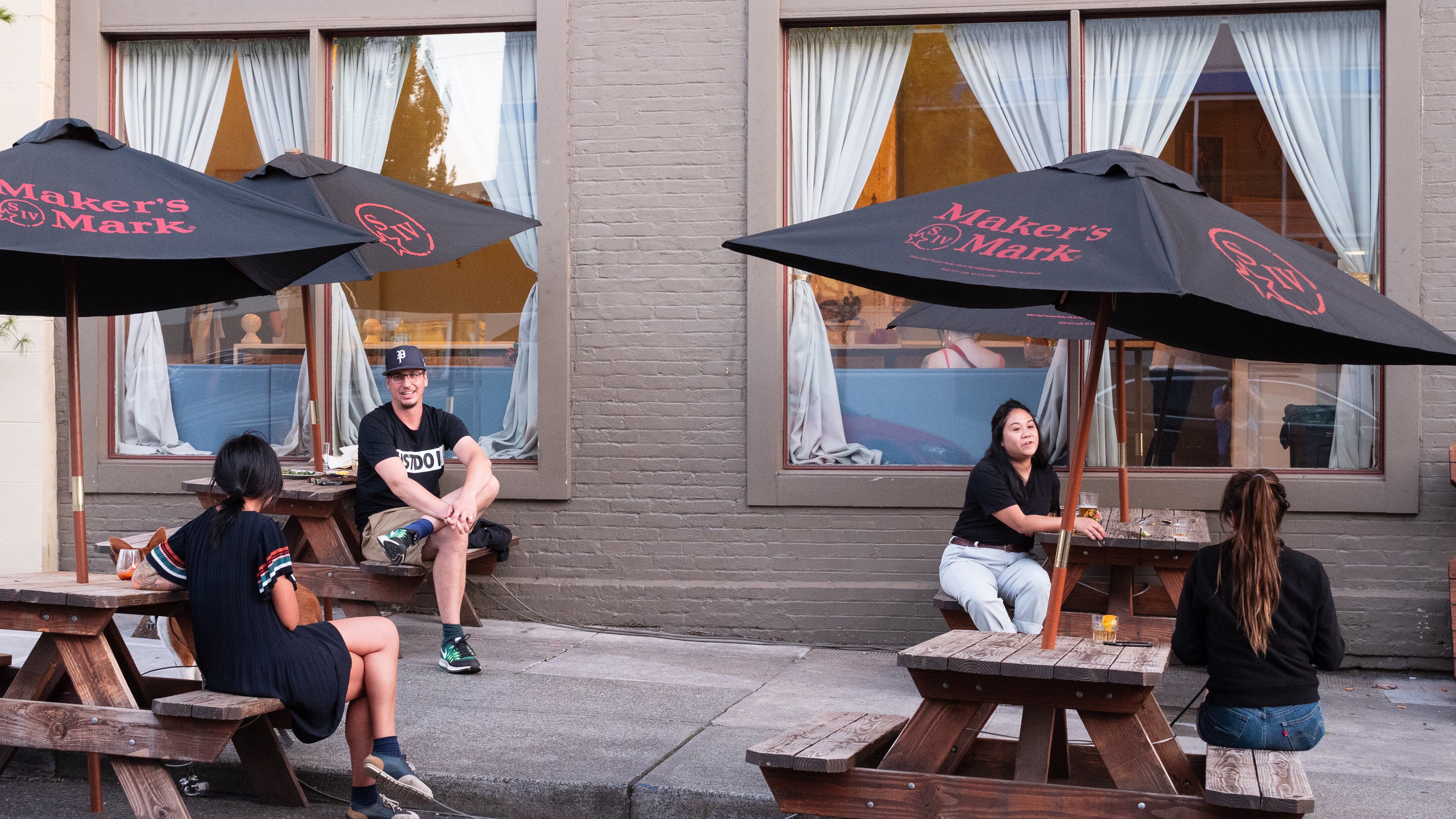As Oregon gradually reopens restaurants for indoor dining, Guy Tauer, an economist with the Oregon Employment Department, took a look this week at the toll the pandemic has taken on the leisure and hospitality industry.
It's a pretty devastating picture.

"Leisure and hospitality had 211,000 jobs in December of 2019 and by December 2020 employment fell to 129,400, essentially erasing the industry's previous 25 years of job gains," Tauer writes. "Of the 178,200 payroll jobs Oregon lost during that time, 81,600 of those, or 46.9%, were in the leisure and hospitality sector."
The impact of the pandemic, for obvious reasons, fell much harder on the leisure and hospitality industry than did the Great Recession of 2008-10. After the Great Recession, Tauer notes, leisure and hospitality saw bigger employment gains than the rest of the state's economy.
"During the Great Recession, employment in this industry fell by 6.1%," Tauer writes. "Oregon's all-industry employment decline was slightly steeper, with payroll jobs declining by 7.4% from pre-recession peak to trough."
More than three-quarters of those employed in the leisure and hospitality industry work in food service or bars, and that's where the big job losses were.
"Food services and drinking places employment fell by a staggering 55,000 jobs statewide, a decline of 34.9%," Tauer found. "Within the food services component, the pain was uneven. Full-service restaurant employment fell by 35,600, or a decline of 50.5%. Limited service restaurants lost 9,100 jobs, or a loss of 12.8%."
Most are mom-and-pop operations.

The good news: As the economy reopens, the industry should rebound quickly. In the years following the Great Recession, that happened.
"[From 2010 to] 2018, leisure and hospitality employment rose by 30.1% compared with a gain of 19.3% for total industry employment."
